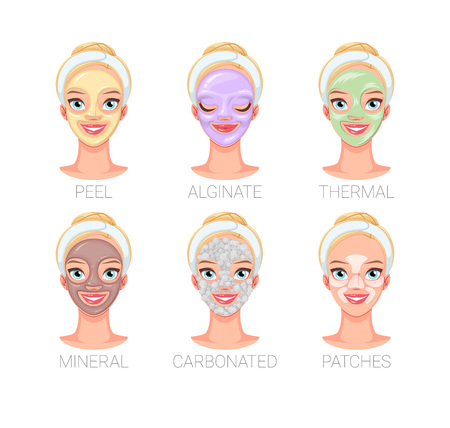Understanding Organic Skincare in the UK
When it comes to men’s grooming and skincare, British consumers are increasingly drawn towards products that boast both authenticity and integrity. Organic skincare has become a buzzword in the UK, but what exactly does it mean? At its core, organic skincare refers to formulations crafted from ingredients grown without synthetic pesticides, fertilisers, or genetically modified organisms. The goal is to minimise chemical exposure while maximising the benefits of nature’s botanicals on your skin.
Popular ingredients often found in British organic skincare include cold-pressed oils like rosehip, hemp seed, and calendula. These not only nourish but also help address common male grooming concerns—from dryness after shaving to environmental stressors encountered during a typical British commute.
But not every product labelled as ‘organic’ meets strict standards. In Britain, certifications such as the Soil Association Organic label ensure that a product contains at least 95% organic agricultural ingredients (excluding water and minerals). This rigorous certification gives UK consumers confidence when investing in their grooming routine, knowing the products are genuinely free from harsh chemicals, artificial fragrances, and unnecessary additives. For men looking to combine style with substance, understanding these standards is essential for making informed choices about daily care.
2. The Rise of the Vegan Movement in Britain
Over the past decade, veganism has taken root in British culture, transforming from a niche lifestyle into a mainstream movement. This shift is not only evident in food choices but has also deeply influenced daily grooming and skincare habits among British men. As more Brits embrace plant-based living, there’s a growing demand for products that align with vegan values, particularly those free from animal-derived ingredients and cruelty-free practices.
The motivation behind this movement is multifaceted, driven by ethical concerns regarding animal welfare, heightened environmental awareness, and a desire for healthier living. These values resonate strongly with younger generations and urban dwellers who are keen to adopt conscious consumer habits that reflect their personal beliefs.
When it comes to men’s grooming routines, the rise of veganism means British gents are now scrutinising ingredient lists more carefully than ever before. No longer satisfied with conventional products laden with animal by-products or tested on animals, they’re opting for grooming essentials that are both effective and ethically sound. This shift is particularly visible in cities like London, Manchester, and Bristol, where vegan-friendly barbershops and organic skincare outlets are on the rise.
Vegan Grooming Choices: What’s Changing?
| Traditional Men’s Grooming | Vegan & Ethical Alternatives |
|---|---|
| Beeswax-based hair pomades | Plant wax-based styling products |
| Lathering creams containing lanolin | Coconut oil or shea butter-based creams |
| Animal hair shaving brushes | Synthetic bristle or bamboo brushes |
| Deodorants with animal-derived glycerin | Vegan deodorants using natural starches and oils |
This transition isn’t just about switching up the bathroom cabinet – it’s about making informed choices that support sustainability and reflect evolving social norms. With British men increasingly prioritising eco-consciousness in their appearance regimes, the overlap between vegan lifestyles and organic skincare becomes ever more significant.

3. Common Ground: Ethical Values and Sustainability
When it comes to organic skincare and the vegan movement in Britain, both communities are firmly rooted in a shared set of ethical values. At the heart of their overlap lies a clear commitment to cruelty-free practices. British consumers are increasingly seeking products that guarantee no animal testing or exploitation, a principle championed by both organic and vegan brands. This cruelty-free ethos is not just a trend; it reflects a broader cultural shift towards compassion and respect for all living beings.
Environmental responsibility is another cornerstone where these movements intersect. Organic skincare prioritises ingredients grown without harmful pesticides or synthetic chemicals, which supports soil health, biodiversity, and overall ecological balance. Similarly, veganism goes hand-in-hand with sustainability, as plant-based formulations tend to have a lower carbon footprint compared to animal-derived alternatives. For many British men who care about their grooming routine, choosing products that support sustainable agriculture and reduce environmental impact has become part of their daily ethos.
Transparency also plays a crucial role in building trust within both communities. Consumers expect brands to clearly disclose ingredient sourcing, production methods, and ethical standards. This demand for honesty has led to an increase in third-party certifications such as Soil Association Organic and The Vegan Society’s Trademark, making it easier for shoppers across the UK to make informed choices. In essence, the alignment of cruelty-free values, environmental stewardship, and transparency forms a solid foundation where organic skincare and the vegan movement mutually reinforce each other—shaping the future of British grooming culture.
4. Key Differences Between Organic and Vegan Skincare
When it comes to choosing between organic and vegan skincare in Britain, the differences might seem subtle at first glance, but they are quite significant upon closer inspection. Understanding these distinctions is essential for consumers seeking products that align with their values, especially as both movements gain momentum across the UK.
Certification: What Sets Them Apart?
Certification is one of the clearest ways to distinguish organic from vegan skincare. In Britain, organic skincare is often certified by bodies such as the Soil Association or COSMOS, which require a strict percentage of organically grown ingredients and prohibit certain chemicals and synthetic additives. On the other hand, vegan certification—such as The Vegan Society trademark—focuses exclusively on ensuring that no animal-derived ingredients or by-products are present and that no animal testing has occurred at any stage of production.
| Aspect | Organic Certification | Vegan Certification |
|---|---|---|
| Main Focus | Organic farming practices; minimal use of synthetic chemicals | No animal-derived ingredients or animal testing |
| Certifying Bodies (UK) | Soil Association, COSMOS | The Vegan Society, Vegan Approved |
| Permitted Ingredients | Can include non-vegan substances if naturally sourced (e.g., beeswax) | All ingredients must be plant-based or synthetic; no animal products |
| Animal Testing Policy | Usually not permitted, but depends on certifier | Strictly prohibited at all stages |
Ingredients: What’s Inside Really Matters
The ingredients list reveals another layer of difference. Organic products prioritise natural components grown without pesticides or GMOs. However, not all organic ingredients are necessarily vegan—a classic example being honey or lanolin. Conversely, vegan products avoid all animal-derived substances, but may still contain synthetic compounds that are not considered organic or natural.
A Practical Example:
An organic moisturiser could contain beeswax (organic but not vegan), while a vegan product might opt for plant-based waxes but still include non-organic ingredients. This distinction can impact not only ethical considerations but also how skin reacts to different formulations.
Consumer Expectations: Navigating the British Market
The British consumer often expects both ethical sourcing and cruelty-free practices from their skincare choices. Yet expectations can differ: those seeking organic products may prioritise sustainability and environmental impact, while vegan consumers focus more intently on animal welfare and avoiding exploitation. Increasingly, savvy shoppers in the UK look for products that tick both boxes—organic and vegan—but recognising that they aren’t interchangeable is key to making informed decisions.
5. British Brands Leading the Charge
When it comes to organic skincare and vegan ethics, Britain boasts a thriving scene of trailblazing brands that are setting new standards in the industry. These home-grown companies are not just following trends—they’re actively shaping them, marrying traditional craftsmanship with modern values. Amongst the most acclaimed is Neal’s Yard Remedies, an iconic name synonymous with certified organic ingredients and a transparent vegan range. Their blue bottles have become a fixture in bathrooms across the UK, standing as a testament to ethical luxury.
Another standout is Pai Skincare, which has built its reputation on clean, cruelty-free formulations that cater especially to sensitive skin types. Proudly manufactured in London, Pai is Soil Association-certified and offers a wide range of 100% vegan products, making it a trusted choice for conscientious consumers.
REN Clean Skincare also deserves mention for its commitment to “clean” beauty—a philosophy rooted in non-toxic, sustainable, and animal-friendly practices. With their Zero Waste Pledge and entirely vegan Evercalm™ line, REN continues to push boundaries within both organic and vegan skincare markets.
Meanwhile, Tropic Skincare, founded by entrepreneur Susie Ma, has rapidly gained cult status for its fresh, handmade products crafted using sustainably sourced botanicals. Their entire collection is certified both vegan and cruelty-free by The Vegan Society and Cruelty Free International, respectively—a badge of honour proudly displayed across their branding.
These brands—along with newer players like UpCircle Beauty, who turn coffee grounds and other natural by-products into effective skincare solutions—showcase just how deeply the values of organic purity and vegan ethics are woven into Britain’s beauty industry. For UK men seeking grooming products or daily skincare essentials that align with these principles, there’s never been a better time—or place—to make the switch.
6. Challenges and Misconceptions
The British market for organic skincare and vegan grooming products is thriving, but navigating this landscape is not always straightforward. One of the major hurdles facing UK consumers is the phenomenon of greenwashing—a marketing tactic where brands exaggerate or falsely claim their products are environmentally friendly, organic, or vegan. This can make it difficult for even the most discerning gents to know what they’re really buying.
Understanding Greenwashing
Greenwashing in Britain often appears through misleading labels, vague terminology like “natural,” or packaging that uses earth tones and leafy graphics to imply eco-credentials. For blokes keen on authentic organic or vegan skincare, this can create confusion and undermine trust in the industry.
Label Confusion and Certification
Another common pitfall is label confusion. In the UK, terms such as “organic” and “vegan” aren’t always regulated as strictly as you might expect. Some brands may use these buzzwords without proper certification from reputable bodies like The Soil Association or The Vegan Society. Look out for official logos—these stamps provide assurance that products meet strict standards regarding ingredients and animal testing.
Tips for Making Informed Choices
To cut through the noise, British men should adopt a few practical habits: scrutinise ingredient lists, research brands’ sustainability practices, and prioritise products with recognised certifications. Don’t be shy about reaching out to companies for clarification—reputable UK brands will happily provide transparency about their sourcing and manufacturing processes. By staying sharp and informed, you’ll ensure your grooming routine is truly aligned with both organic principles and vegan values.
7. The Future of Ethical Grooming in the UK
As the lines between organic skincare and the vegan movement continue to blur, British gents are poised to benefit from an era of unprecedented choice and innovation in ethical grooming. Across the UK, there’s a palpable shift towards sustainability—not just as a buzzword, but as a genuine lifestyle. More brands are investing in biodegradable packaging, carbon-neutral production, and locally-sourced ingredients that support both the environment and local economies. Expect to see products that wear their certifications with pride: Soil Association Organic, Vegan Society-approved, and cruelty-free labels will become standard markers for quality.
Innovations on the horizon include waterless formulations—think solid cleansers and shampoos—which reduce waste and extend product lifespan, aligning perfectly with the British penchant for practicality. Meanwhile, homegrown botanicals like Scottish seaweed or Cornish kaolin clay are making their way into sophisticated men’s skincare routines, bringing a uniquely British flair to everyday grooming rituals. The rise of refill stations in barbershops and department stores is another trend set to take off, giving eco-conscious blokes an easy way to cut down on single-use plastics.
Personalisation will also come to the fore, with AI-driven skin analysis and bespoke blending services allowing men to create regimens tailored precisely to their needs—whether it’s combating city pollution or soothing post-shave sensitivity. Importantly, these advances don’t come at the expense of style; rather, they empower British men to look sharp while staying true to their values.
Ultimately, the future of ethical grooming in Britain isn’t just about what you put on your face—it’s about making choices that reflect who you are and what you stand for. As awareness grows and demand increases, British gentlemen can look forward to a grooming landscape where luxury meets responsibility, and looking good goes hand-in-hand with doing good for the planet.


